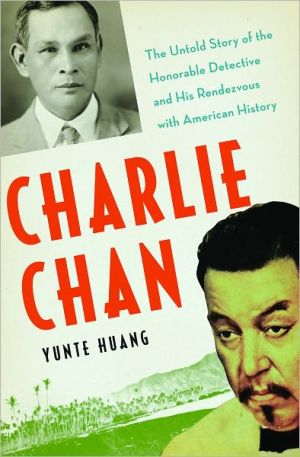The Affirmative Action Empire: Nations and Nationalism in the Soviet Union,1923-1939
The Soviet Union was the first of Europe's multiethnic states to confront the rising tide of nationalism by systematically promoting the national consciousness of its ethnic minorities and establishing for them many of the institutional forms characteristic of the modern nation-state. In the 1920s, the Bolshevik government, seeking to defuse nationalist sentiment, created tens of thousands of national territories. It trained new national leaders, established national languages, and financed...
Search in google:
The Soviet Union was the first of Europe's multiethnic states to confront the rising tide of nationalism by systematically promoting the national consciousness of its ethnic minorities and establishing for them many of the institutional forms characteristic of the modern nation-state. In the 1920s, the Bolshevik government, seeking to defuse nationalist sentiment, created tens of thousands of national territories. It trained new national leaders, established national languages, and financed the production of national-language cultural products. This was a massive and fascinating historical experiment in governing a multiethnic state. Terry Martin provides a comprehensive survey and interpretation, based on newly available archival sources, of the Soviet management of the nationalities question. He traces the conflicts and tensions created by the geographic definition of national territories, the establishment of dozens of official national languages, and the world's first mass "affirmative action" programs. Martin examines the contradictions inherent in the Soviet nationality policy, which sought simultaneously to foster the growth of national consciousness among its minority populations while dictating the exact content of their cultures; to sponsor national liberation movements in neighboring countries, while eliminating all foreign influence on the Soviet Union's many diaspora nationalities. Martin explores the political logic of Stalin's policies as he responded to a perceived threat to Soviet unity in the 1930s by re-establishing the Russians as the state's leading nationality and deporting numerous "enemy nations."About the Author: Terry Martin is Assistant Professor of History at Harvard University. New Yorker In the popular imagination, the Soviet Union was always synonymous with Russia, but in the U.S.S.R.'s early days Soviet leaders had a very different idea in mind: they wanted to establish a true multinational, multi-ethnic empire. To that end, they attacked Russian nationalism as a vestige of Tsarism, and instituted a set of policies that looked very much like affirmative action, enforcing the use of local languages and fostering the development of ethnic leaders, even at the cost of discriminating against Russians. Yet, as Martin shows in this fascinating history, simply giving an order was not enough, even in the Stalin years, and the complex relationship between socialism and nationalism in places like Ukraine often frustrated Soviet intentions. More important, ethnicity, once fostered, was frequently a counterweight to, rather than a bulwark of, Communist ideology; although Stalin remained rhetorically committed to the multi-state idea, he ended up terrorizing those ethnic leaders he saw as threats.
List of Tables and MapsAcknowledgmentsFootnote AbbreviationsA Note on Style1The Soviet Affirmative Action Empire1Pt. 1Implementing the Affirmative Action Empire292Borders and Ethnic Conflict313Linguistic Ukrainization, 1923-1932754Affirmative Action in the Soviet East, 1923-19321255The Latinization Campaign and the Symbolic Politics of National Identity182Pt. 2The Political Crisis of the Affirmative Action Empire2096The Politics of National Communism, 1923-19302117The National Interpretation of the 1933 Famine273Pt. 3Revising the Affirmative Action Empire3098Ethnic Cleansing and Enemy Nations3119The Revised Soviet Nationalities Policy, 1933-193934410The Reemergence of the Russians39411The Friendship of the Peoples432Glossary462Bibliography465Index483
\ New YorkerIn the popular imagination, the Soviet Union was always synonymous with Russia, but in the U.S.S.R.'s early days Soviet leaders had a very different idea in mind: they wanted to establish a true multinational, multi-ethnic empire. To that end, they attacked Russian nationalism as a vestige of Tsarism, and instituted a set of policies that looked very much like affirmative action, enforcing the use of local languages and fostering the development of ethnic leaders, even at the cost of discriminating against Russians. Yet, as Martin shows in this fascinating history, simply giving an order was not enough, even in the Stalin years, and the complex relationship between socialism and nationalism in places like Ukraine often frustrated Soviet intentions. More important, ethnicity, once fostered, was frequently a counterweight to, rather than a bulwark of, Communist ideology; although Stalin remained rhetorically committed to the multi-state idea, he ended up terrorizing those ethnic leaders he saw as threats.\ \








